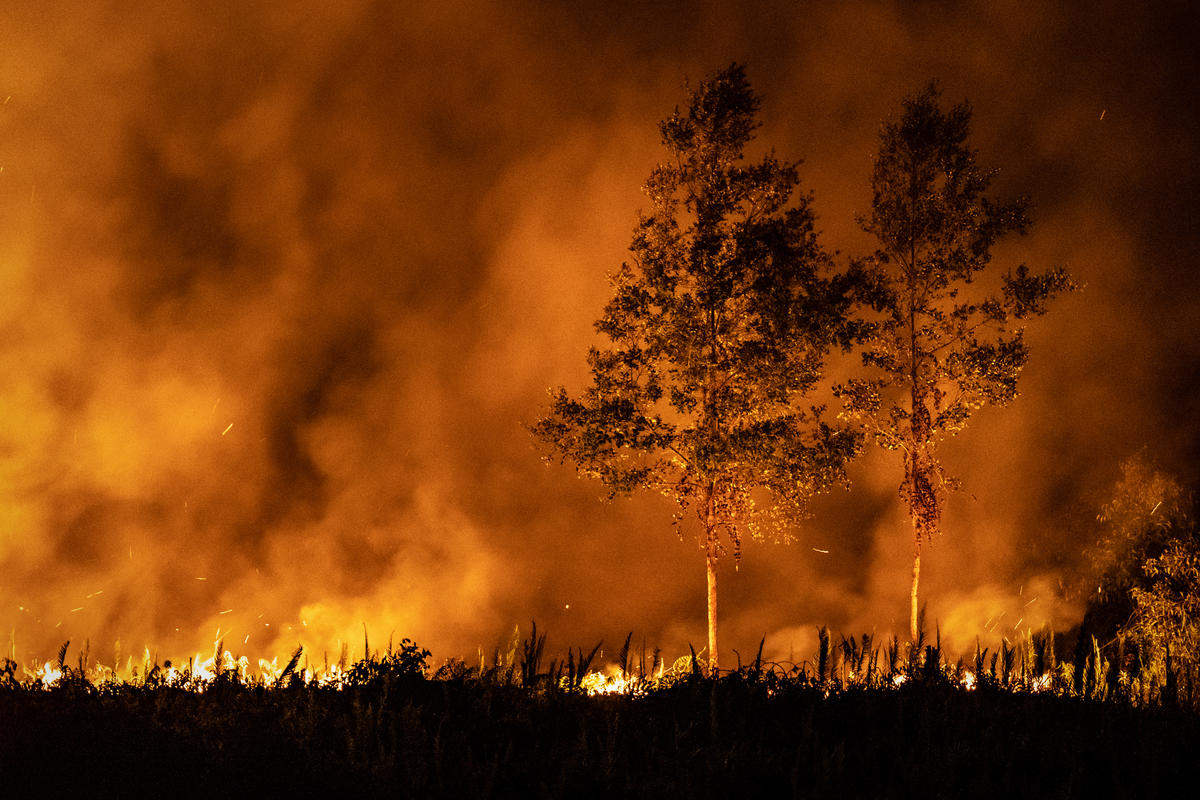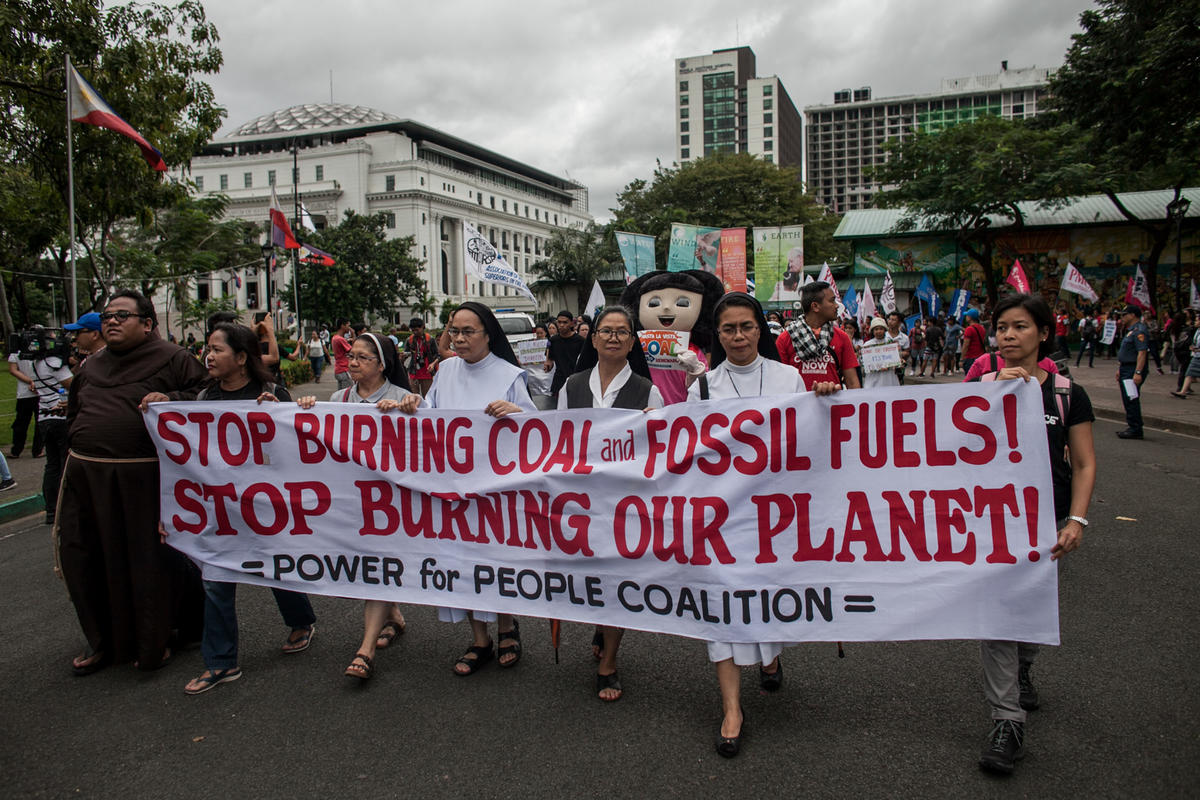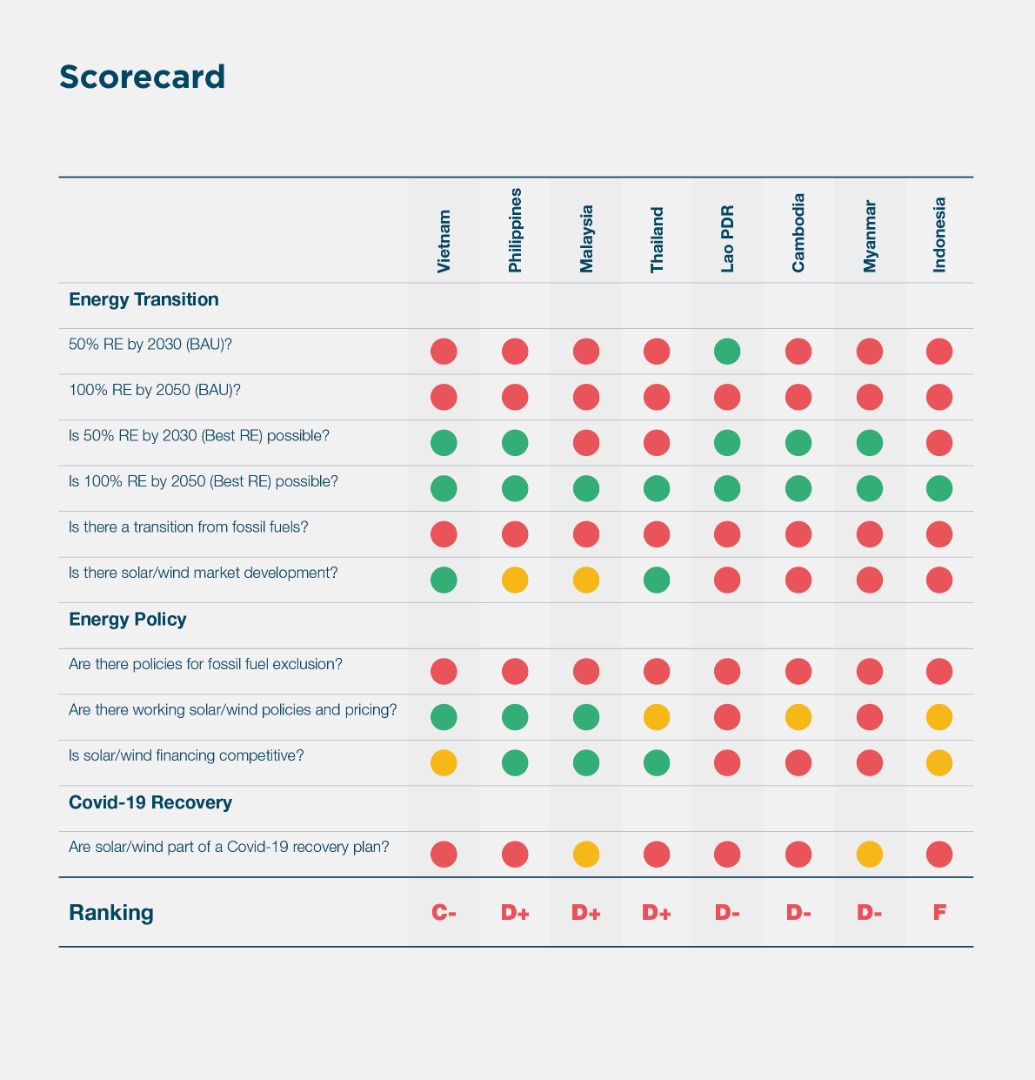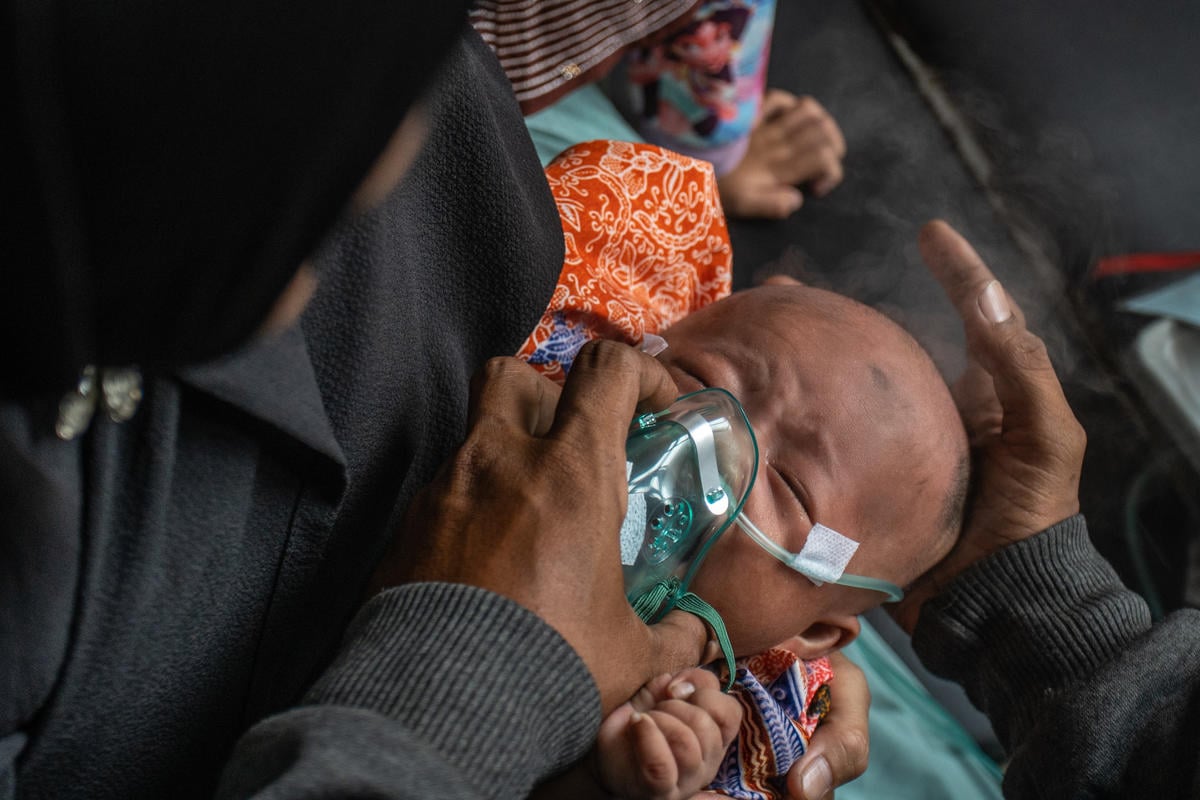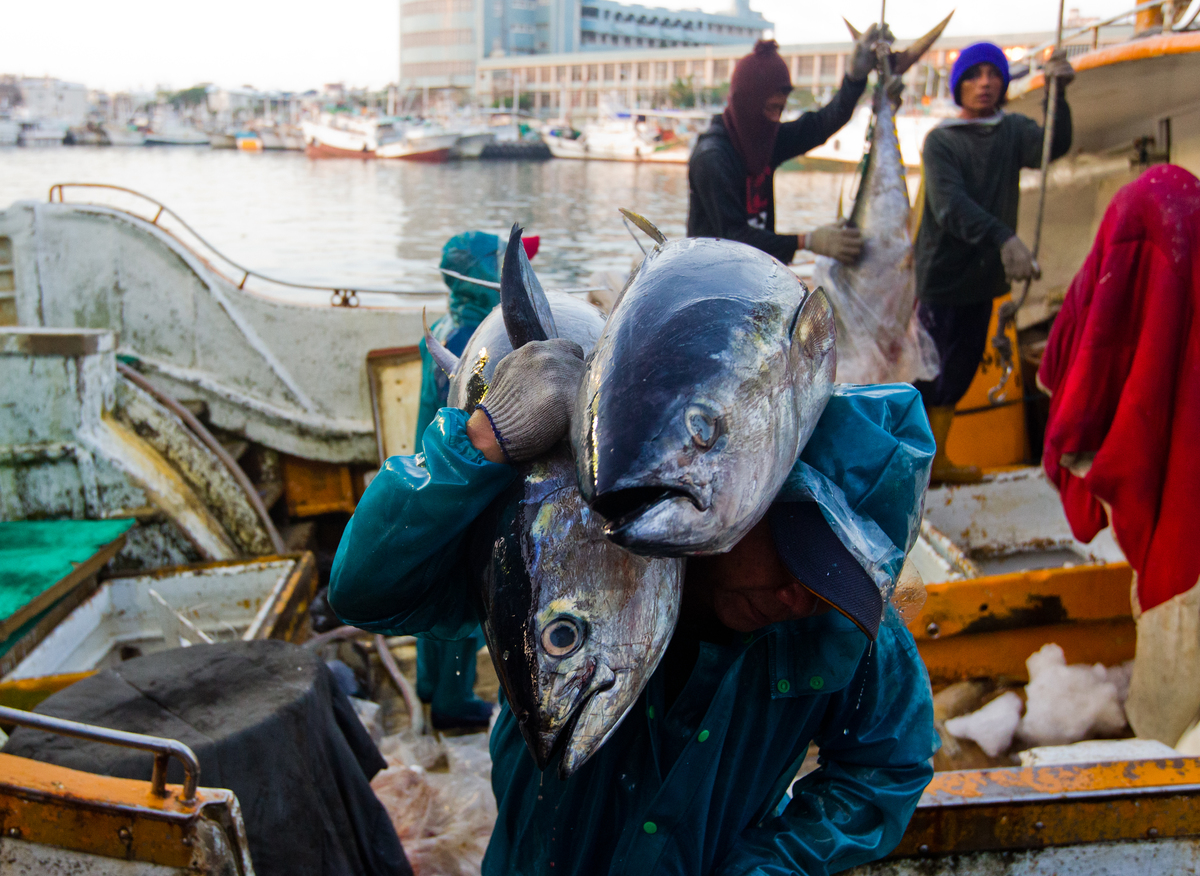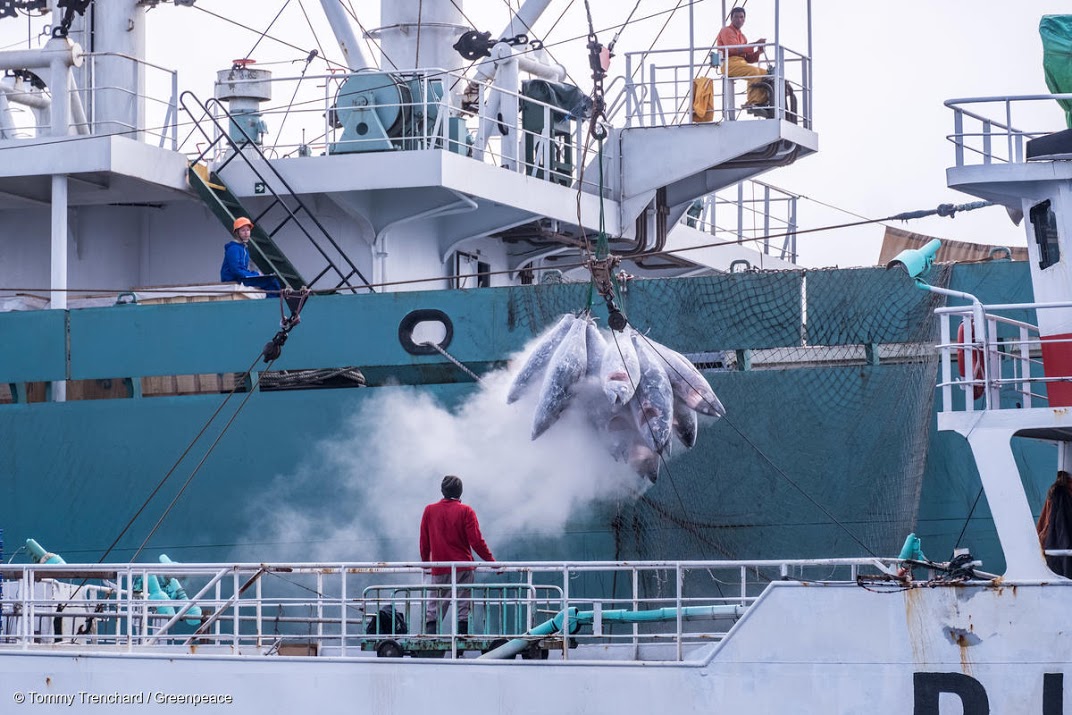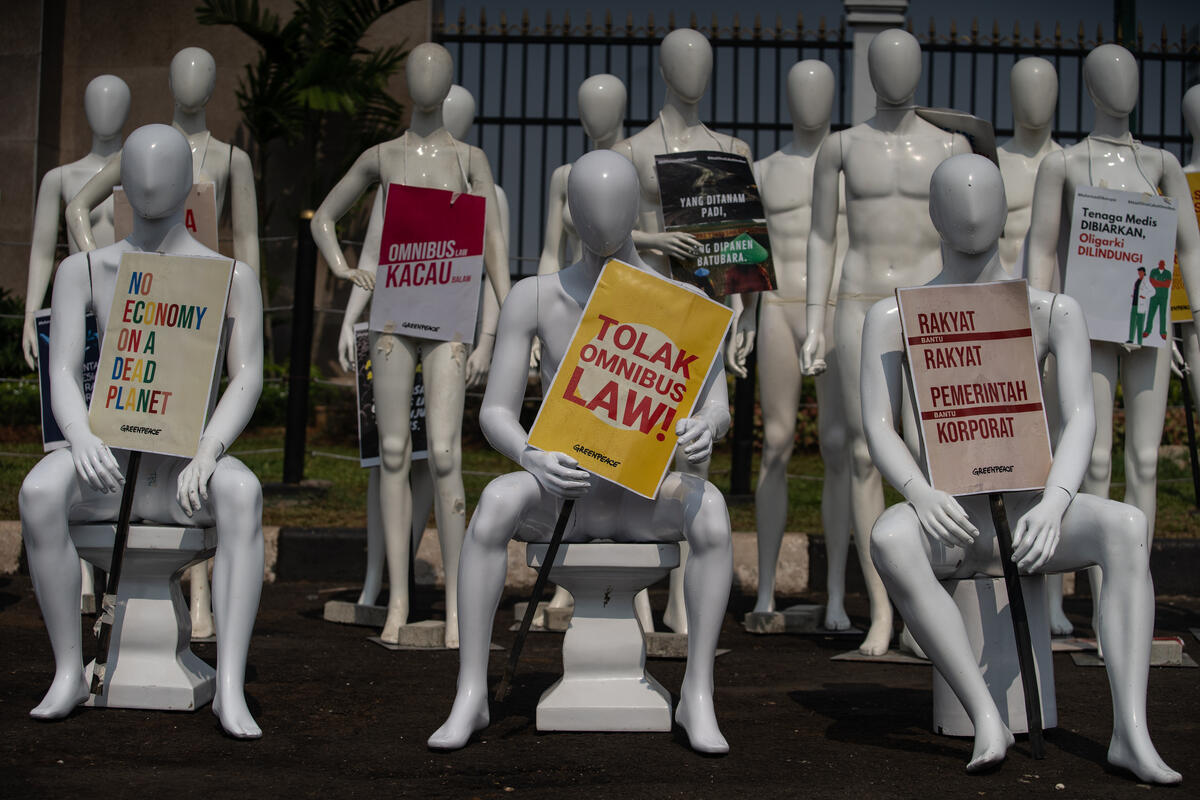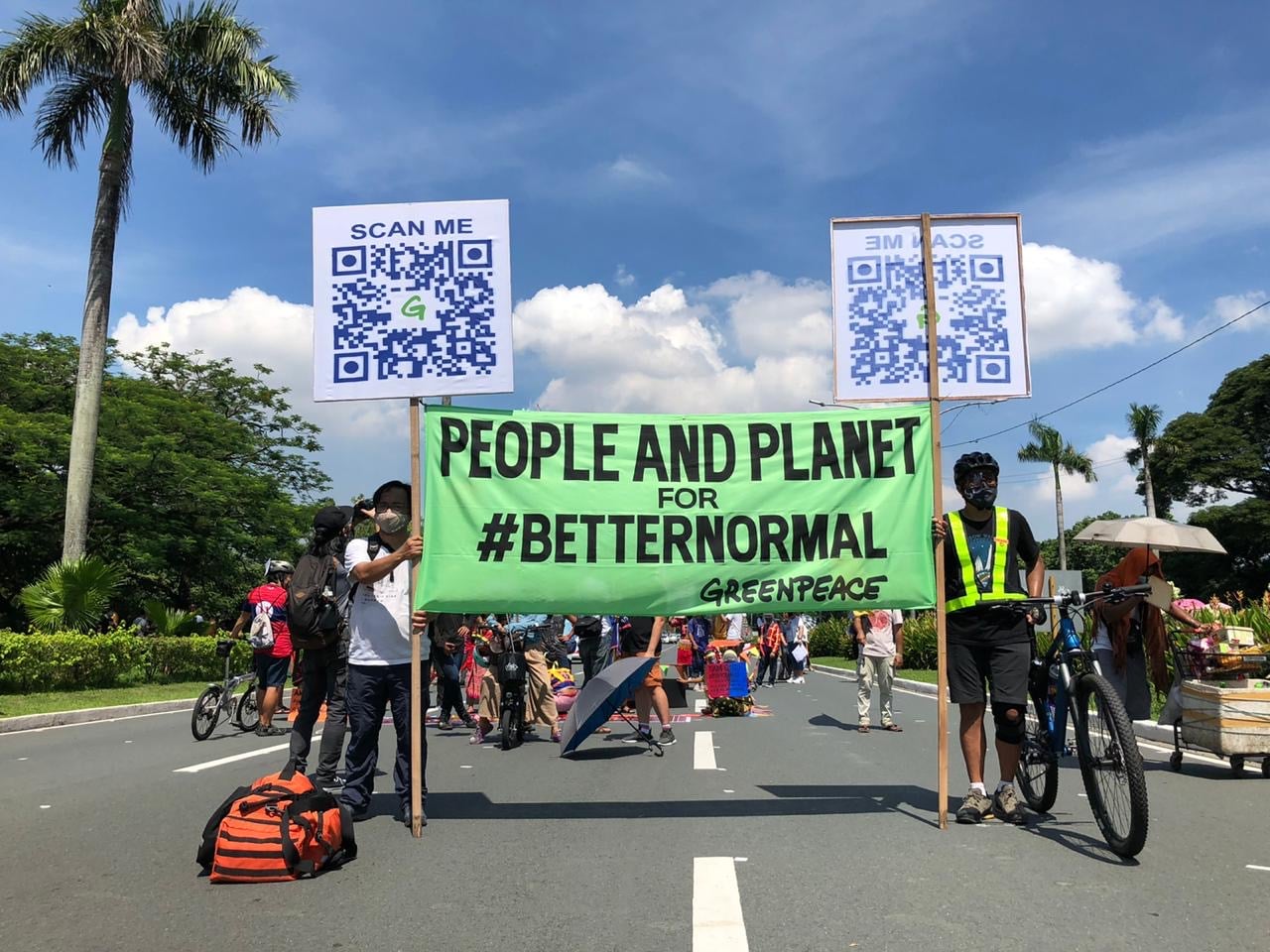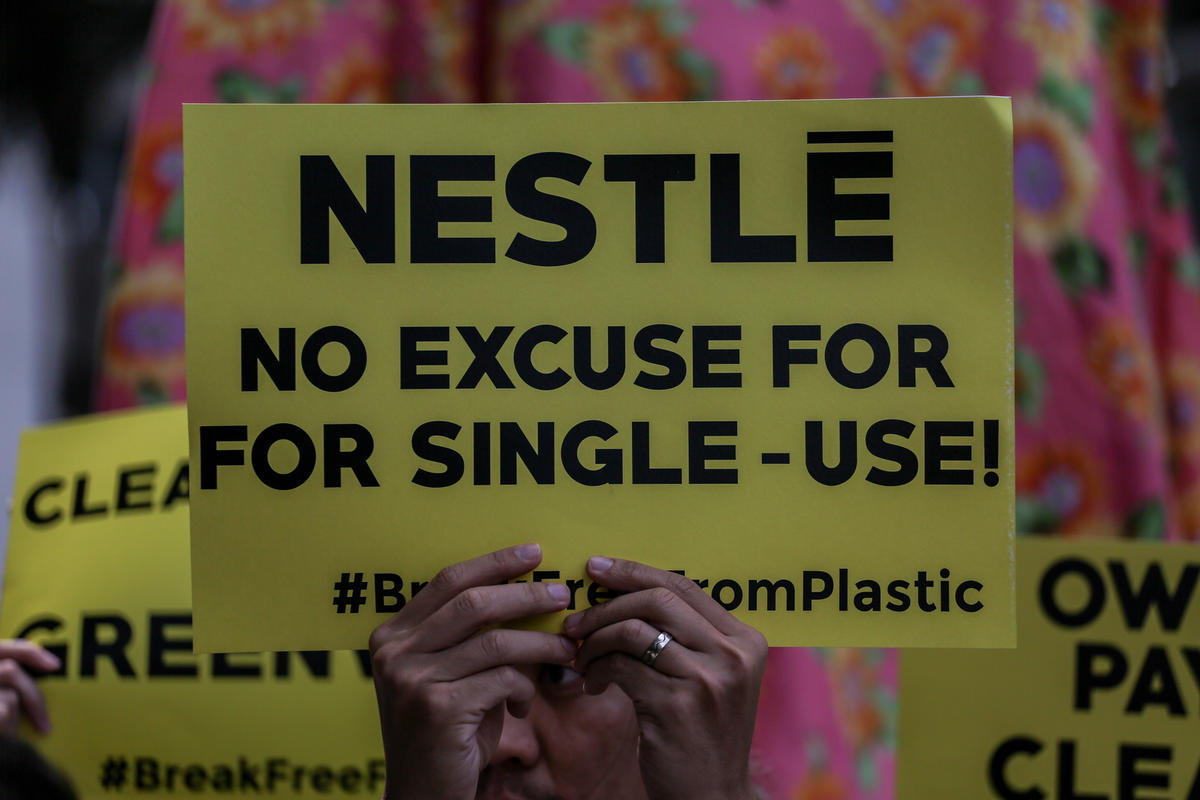All articles
-
An area eight times the size of Bali has burned in Indonesia in the last five years, new Greenpeace report shows
Greenpeace Southeast Asia's new report ‘Burning Issues: Five Years of Fire’ exposes the total failure of Indonesia’s government to protect forest and peatland from burning.
-
Greenpeace Philippines reactive on Duterte’s call for stronger climate commitments at UN
Filipinos cannot afford to suffer more. President Duterte must use this opportunity to declare a Climate Emergency that will enable a recovery that will transform our economy and society to tackle the climate crisis and promote positive environmental and health outcomes. Doing so will help build resilience against future shocks, and ensure a society that…
-
Southeast Asia power sector scored: Bottlenecks and bailouts pose major climate risks
The scorecard maps business-as-usual and best-case-renewable-energy scenarios for eight countries -- Indonesia, Vietnam, Thailand, the Philippines, Malaysia, Laos, Cambodia, and Myanmar -- using International Panel on Climate Change (IPCC) 1.5 degrees pathway. This graded snapshot of each country’s energy transition, fossil fuel exclusions, solar and wind market development, policies and pricing, competition, and Covid-19 stimulus…
-
Forest Fires Haze: New Greenpeace report reveals alarming health impacts and links to severity of COVID-19
Governments in Southeast Asia have massively downplayed the health impacts of Indonesia’s forest and peatland fires according to a new report released today by Greenpeace Southeast Asia.
-
Greenpeace Southeast Asia on the latest case of Indonesian migrant fishers onboard Chinese fishing vessel Liao Yuan Yu 103, requesting immediate rescue by Indonesian authorities
In the past six years, Greenpeace Indonesia and Indonesian Migrant Workers Union (SBMI) have received 338 labor abuse complaints of Indonesian migrant fishers onboard foreign fishing vessels. It is important to note that this kind of case is recurring because of the lack of proactive and effective actions taken by Indonesian government in the last…
-
Greenpeace demands sustainability and due diligence on human rights for tuna industries in Southeast Asia
Lack of support and accountability for migrant fishing crew remain a failing issue, with only 20 percent of major southeast Asian tuna brands providing measures to reduce, or eliminate modern slavery at sea, according to the latest cannery ranking report by Greenpeace Southeast Asia.
-
Warning: Omnibus Law is Threatening Indonesia’s Sustainable Investment
Indonesia’s civil society groups sent Investment Warning statements to the international financial institutions and several investor and cooperation countries.
-
Greenpeace Philippines on President Duterte’s State of the Nation Address: ‘No mention of coherent policy agenda for recovery and beyond’
The government needs to realize that protecting the environment also means protecting the rights of people and communities--their right to life, health, livelihood, and the right of present and future generations to a healthy environment and a stable climate.
-
Greenpeace statement on Nestle Malaysia’s unsustainable move from plastic to paper straws
Nestle (Malaysia) Bhd announced today that it plans to adopt paper straws across its entire range of ultra-high temperature (UHT) by year end. Although Nestle claims this move will help in tackling the plastic pollution crisis, it is a misguided one, that aims at switching from one throwaway material to another. It also does not…
-
One million solar rooftops by 2023
Bangkok, Thailand – To speed up the country’s green and just recovery post COVID-19, Greenpeace Thailand launched an ambitious “one million solar rooftop” plan of action to be part of…

